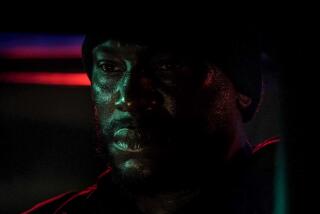United Poor, Middle Classes Can Hold Decision-Makers Accountable
- Share via
Whatever one calls them--riots or civil unrest--the events that followed the verdicts of the 1992 Rodney G. King beating trial have left a scar on the collective psyche of the nation and forced us to look into the fabric of our society, searching for explanations and solutions. Whatever ethnicity, class or status one belongs to, many agree that inner-city poverty helped fuel and magnify that explosion.
Rebuild L.A. and other institutions have emphasized the need to create more businesses as a long-term solution to inner-city poverty. This is the same vision that guided Los Angeles after the 1965 Watts riots. But since then, the middle class has shrunk and the poor have increased. The 1965 plan did not prevent the 1992 riot.
What went wrong?
Big businesses have deemed poor neighborhoods unprofitable through redlining. In spite of high crime, many recent immigrant families had established small but thriving businesses in these areas. Of the more than 3,000 businesses destroyed, a majority were owned and run by family members, working 12 to 16 hours a day, believing in the American Dream. But language and cultural differences have complicated the relationship between the merchants and the local residents.
Powerless and disorganized, the poor struck out at everyone, including small-business owners. Korean merchants, who felt the brunt of the rioting, had failed to establish an alliance with the community they do business with. They were mistakenly perceived as opportunists.
In order to survive, the middle class that does business in the community must show that it is an ally of the disenfranchised. The middle class has to share some of its resources and help the have-nots get organized.
One example is the South-Central branch of the Legal Aid Foundation of Los Angeles. It was the only unharmed building in its block because its services and development work have been acknowledged by the neighborhood’s working poor.
Organizations that advocate for the poor must maintain a balance between using their resources to develop a people’s organization and making their conservative funders happy. The Community Economic Development arm of the Legal Aid Foundation is a good example of how the resources are channeled to help the working poor in public housing communities become self-sufficient. Tenant, ethnic, street vendor and neighborhood associations are trained to establish and run their own organizations, programs and businesses.
An organized, empowered working poor, in alliance with the middle class, can influence the direction of society. Common issues such as job security, health care, housing and education will help forge a long-term alliance between the shrinking middle class and the have-nots.
Thirteen percent of the Asian and Pacific Islander population of Los Angeles County is poor and disenfranchised, recent research based on the 1990 Census showed. Although the rate of poverty is not as high as other minority communities, the working poor of Asian origin need to begin organizing efforts to address their particular issues, such as fair representation in politics and social services. Organizing on the basis of ethnic origin can unite people to solve issues that affect their community.
Coalitions such as the Asian Pacific Americans for a New Los Angeles, the Concerned Citizens of South Central and the Latino Coalition for a New Los Angeles are necessary to address issues of their respective communities.
Issue-based organizing must be able to transcend ethnic-based organizing. Multicultural programs must be seen as integral parts of social, economic and political organizing.
However, to rely on this approach to resolve problems among ethnic groups without due consideration to classes in society, we fall into traps set by special-interest groups. The basic challenge is to consolidate the common interest of the have-nots of different ethnic groups, and build a relationship among them to mobilize on common issues.
Organized and politically conscious, the poor and the middle classes can hold big businesses and government decision-makers accountable to the real majority: the poor and the middle classes.
More to Read
Sign up for Essential California
The most important California stories and recommendations in your inbox every morning.
You may occasionally receive promotional content from the Los Angeles Times.













![Vista, California-Apri 2, 2025-Hours after undergoing dental surgery a 9-year-old girl was found unresponsive in her home, officials are investigating what caused her death. On March 18, Silvanna Moreno was placed under anesthesia for a dental surgery at Dreamtime Dentistry, a dental facility that "strive[s] to be the premier office for sedation dentistry in Vitsa, CA. (Google Maps)](https://ca-times.brightspotcdn.com/dims4/default/07a58b2/2147483647/strip/true/crop/2016x1344+29+0/resize/840x560!/quality/75/?url=https%3A%2F%2Fcalifornia-times-brightspot.s3.amazonaws.com%2F78%2Ffd%2F9bbf9b62489fa209f9c67df2e472%2Fla-me-dreamtime-dentist-01.jpg)